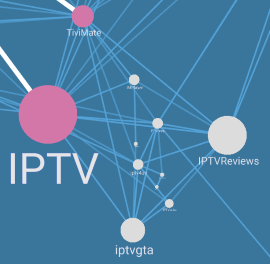-
chevron_right
The Pirates vs. The Premier League: Must-Listen Podcast Available Now
news.movim.eu / TorrentFreak · Saturday, 26 August, 2023 - 14:35 · 3 minutes
 When a sports business journalist says he’s producing a podcast series on piracy, there’s always a risk that the end product will end up sounding like a corporate anti-piracy campaign disguised as independent reporting.
When a sports business journalist says he’s producing a podcast series on piracy, there’s always a risk that the end product will end up sounding like a corporate anti-piracy campaign disguised as independent reporting.
After learning of the project a few months ago, we are pleased to confirm that podcast series The Pirates vs The Premier League is out now and certified free from distracting influences.
Created by journalists Matt Cutler and Richard Gillis, the series begins with football fan Matt hoping to find a pirated live stream of a match featuring his team, Aston Villa, which isn’t being shown in the UK.
Given that the Premier League insists this is a crime (watching streams, not supporting Aston Villa), the admission sets the tone for an honest view of IPTV piracy. Matt speaks with those who supply streams, hears from fans who consume them, and with input from various experts, tries to understand the implications for the Premier League and the sport in general.
Meet Neo. #ThePiratesvThePremierLeague #Sportsbiz pic.twitter.com/YXBgXnTCVM
— Unofficial Partner
(@UnffclPrtnr) August 18, 2023
We’ll let the podcast tell its own story but a significant point emerges from the podcast in the form of a jarring omission. Contributors include fans, a close friend of a jailed IPTV pirate, an IPTV reseller, anti-piracy company Nagra, various industry analysts and fascinating input from Will Page, former Chief Economist at Spotify, to name just a few.
The Premier League, the body at the epicenter of the debate, refused to participate.
The podcast explores various theories on why the Premier League prefers to exclude itself from the discussion, while acknowledging the exceptional quality of the Premier League product. One of the questions relates to the cost of that product in an economic downturn and whether football’s traditional working class fans are being priced out in favor of the middle classes.
“The Premier League is a fantastic product. It’s hard to argue against that,” Matt informs TorrentFreak.
“Over the last 30 years it has taken football not just in the UK but globally to a new level of quality and entertainment, and also the clubs are doing more than ever to support grassroots and good causes. That’s only been enabled because of the investments that have come from Sky and other subscription broadcasters. But I do believe football in particular has become too expensive.
“TV is the main way most football fans watch sport; season ticket waiting lists are at an all-time high and even if you can get a ticket, you have to be able to afford it. The cost of living crisis is putting this under the spotlight and piracy in many ways democratizes football again. Yet the data also shows two-thirds of people who pirate sports broadcasts also pay for sports broadcasts legitimately.
“Fans will pay, millions just don’t currently have access to a product that delivers what they want at a price point they are willing to pay.”
Factors Beyond Price Fuel Piracy
The podcast also addresses the controversial ‘3pm blackout’ and its contribution to piracy rates. Matt believes that getting rid of the broadcasting ban would be a major step forward, as would a change of anti-piracy messaging and more consideration for those who can’t afford to follow the sport anymore.
“The blackout is a core reason why people are pirating sport in the UK and I haven’t seen any evidence that its removal will have a negative impact on grassroots football, both attendances and people playing,” Matt says.
“I’d also like to see communications changed away from ‘pirating sport might get you arrested’ to better explaining why the money being spent on media subscriptions benefits fans and the clubs they support. And who the illegitimate content lines the pockets of.
“Lastly, and maybe this is a reach but, subsidizing subscription costs for those struggling financially wouldn’t go amiss.”
The Pirates vs The Premier League is available on Spotify and Apple ( Unofficial Partner Productions )
From: TF , for the latest news on copyright battles, piracy and more.



 Amazon is not just the largest e-commerce retailer, the company also has a significant copyright portfolio.
Amazon is not just the largest e-commerce retailer, the company also has a significant copyright portfolio.







 The American copyright industry generates billions of dollars in annual revenue and is generally seen as one of the country’s primary exports.
The American copyright industry generates billions of dollars in annual revenue and is generally seen as one of the country’s primary exports.
 In recent years, many people have canceled their expensive cable subscriptions, opting to use cheaper Internet TV instead.
In recent years, many people have canceled their expensive cable subscriptions, opting to use cheaper Internet TV instead.




